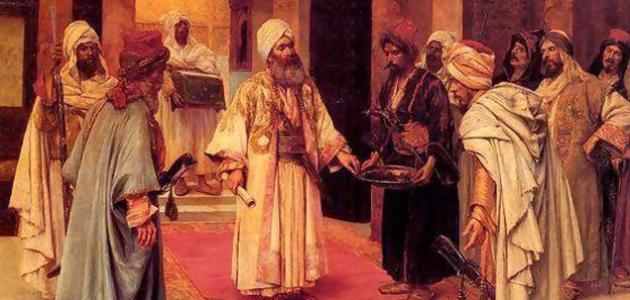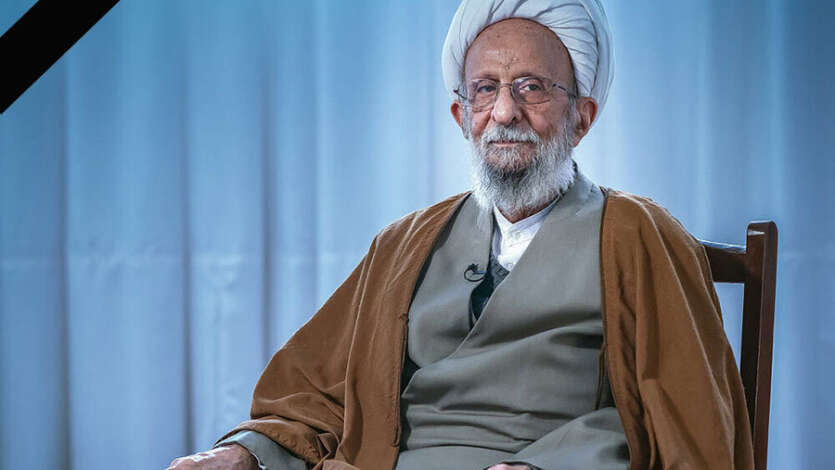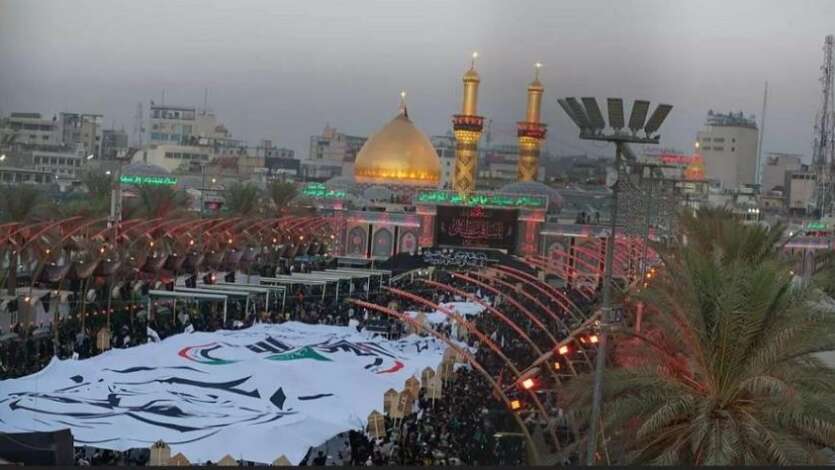Souls Sacrificed for Religion
By: Āyatullah Muḥammad Taqī Miṣbāḥ Yazdī
Translated by: Muhammad Reza Dorudgar & Zaid Alsalami
PART SEVEN
Methods of weakening religion and values in society
It is necessary to further expand on this topic, due to how important it is, and to explain how religion and its survival in society is under threat, and how Islamic values, beliefs and laws in the society and becoming weak and gradually disappearing. It is extremely important, especially in this day and age, for us to understand what methods and strategies our enemies use towards this. With people in society who are committed to Islam and Islamic belief and values, how can their faith be gradually weakened, and in some cases totally wiped away.
The natural and common way for this to happen and is used in today’s society, which all of us have witnessed up close, especially the last few years, is casting misconceptions. In this kind of method, the enemies present misconceptions and questions about the foundation of religion, religious rulings and Islamic values and beliefs. People who do not have deep understanding and knowledge of Islam become affected by these misconceptions, and it affects their faith. Casting these doubts, and then join that with other factors, the result will be a gradual fading of Islam in the society, and nothing of it will be left except its name.
There are various methods and tools used for presenting misconceptions, like books, reading material, lectures, influential or famous people, tv programs, rumours, media propaganda, false news, and so on. These are among many tools and methods the enemy uses to reach their evils objectives.
For example, they would sometimes use a “questionnaire” survey. If you have a child who goes to school, you have probably come across something like this. The questionnaire distributed among students under the pretence of being a survey, or elevating the level of information, or any other excuses, are all strategically designed and planned. The questions presented in the questionnaire are put in such a way that it unconsciously results in questioning one’s faith, religion and Islamic principles. This will be the case especially when we note that these questions are directed at a teenager who is not in the position of offering in-depth answers or having vast knowledge of technical topics in religious studies. Due to the age he/she may be, their faith and belief might not be that firm and well-established. Add to this what a teacher might discuss in class what would further strengthen that misconception in the young teenager’s mind, reinforcing these doubts. In order for us to avoid discussing things in general, and to reveal in practice what we are mentioned, here are some examples of questions given in questionnaires:
- If religion makes life better, why don’t Islamic societies get better?
- Why does someone have to follow a religion?
- Is it not possible to achieve spirituality through means other than religion, like Yoga?

- Why must Islam be the only religion to follow?
- With this level of oppression around the world, why doesn’t Imām Mahdī (a.s.) reappear?
- Why does God praise Himself so much?
- Why would God create Satan to mislead us?
- Can Islam that appeared over 1400 years ago solve all these problems of humanity in today’s world?
- Why don’t people have a right to choose a religion other than Islam?
- Why doesn’t God help Muslims and other oppressed people who are cruelly killed around the world?
- Why is the blood-money (diya) of women half that of men?
- Why is there so much injustice towards women in courts, and why are laws related to women not appropriately amended to become appropriate for this time?
Without any need for explanation, merely posing such questions to students in middle and high (and even sometimes in elementary) school level have damaging effects and can result in destroying of ideology and faith.
Our enemies have realised that presenting ideological or “scientific” doubt to weaken and remove faith from people and individuals in a society is not enough. Practical methods are needed as well, preparing field work in the area of behaviour and action. The basis for this is that faith in principle is made up of two foundations:
The first is knowledge (ʿilm), and the second is intending to act on the effects and practice (ʿamal) that knowledge. We have explained this topic in detail in our other books.[1]
Knowledge and education alone do not make a person have faith. To produce faith, besides knowledge, there must be will and inner inclination, or else, in many cases, although someone has certainty in it, in practice they will act completely opposite to it.
There are many who know with certainty in their soul that God exists, but reject and deny Him with their tongue. Pharoah was one of these people. When Prophet Moses (a.s.), who was sent by God and knew the outer and inner of people said to Pharoah: “you know I am a Prophet of God, and these miracles I perform are by the power and will of God. The Quran says:
لَقَدْ عَلِمْتَ مَا أَنْزَلَ هَؤُلاءِ إِلا رَبُّ السَّمَاوَاتِ وَالأرْضِ بَصَائِرَ
You certainly know that no one has sent these [signs] except the Lord of the heavens and the earth as eye-openers.[2]
Beside Pharoah, there are many other pharaohs who had certainty about God’s existence, but yet they denied it. The Quran says:
فَلَمَّا جَاءَتْهُمْ آيَاتُنَا مُبْصِرَةً قَالُوا هَذَا سِحْرٌ مُبِينٌ. وَجَحَدُوا بِهَا وَاسْتَيْقَنَتْهَا أَنْفُسُهُمْ ظُلْمًا وَعُلُوًّا فَانْظُرْ كَيْفَ كَانَ عَاقِبَةُ الْمُفْسِدِينَ
And when Our signs came to them, as eye-openers, they said, ‘This is plain magic.’ They impugned them –though they were convinced in their hearts- wrongfully and defiantly. So observe how was the fate of the agents of corruption![3]
Therefore, it is not the case that just because someone knows something or has certainty about it will necessarily have faith in it as well. What faith needs, beside knowledge, is acknowledgement and acceptance in the heart, intending to commit to what comes about from faith and act upon it as well. If someone has knowledge, but is not committed to what it necessitates, then they cannot be considered a person of faith. This kind of non-belief that comes from knowledge and intention is the worst kind of kufr. Non-belief sometimes comes from ignorance and lack of knowing, but sometimes non-belief originates from arrogance, stubbornness, being malice or obstinacy. This second type of non-belief is called “kufr juḥūdī”, amd many times worse that the first type of kufr.
In any case, psychologists have long ago recognised this psychological principle, that to remove belief from people and from individuals in a society does not necessarily need be done by invading them or directly criticising and attacking their belief system. It can be done more effectively by facilitating social grounds that would make people conduct themselves and behave opposite to their belief. If the atmosphere and opportunity for sin is facilitated in society, and people become accustomed to it, their faith will gradually weaken and eventually disappear.
This shows the shared relation that actions and behaviour people have towards goodness and stability, in what it produces in reinforcing faith. In opposite to this, sin and immorality will ruin and destroy faith. Based on one interpretation, this following verse refers to the positive aspect of this relation, explaining that good acts elevate faith and reinforce it:
إِلَيْهِ يَصْعَدُ الْكَلِمُ الطَّيِّبُ وَالْعَمَلُ الصَّالِحُ يَرْفَعُهُ
To Him ascends the good word, and He elevates righteous conduct. [4]
The negative aspect of this relation between action and behaviour, and the effect of sin in ruining faith have been also been explained in this holy verse:
ثُمَّ كَانَ عَاقِبَةَ الَّذِينَ أَسَاءُوا السُّوءَى أَنْ كَذَّبُوا بِآيَاتِ اللَّهِ وَكَانُوا بِهَا يَسْتَهْزِئُونَ
Then the fate of those who committed misdeeds was that they denied the signs of Allah and they used to deride them. [5]
This means that if some people believe and really have faith in God and His divine verses, but do not commit to what these qualities necessitate, frequently acting opposite to it and insist on this, ultimately, they will lose their faith, reject God, reject His verses and mock them.
In order for the enemy of religion to effectively weaken people’s faith, they must work on two factors: the first is awareness, and the second is behaviour and action. With behaviour, by providing a basis for sin and moral decadence, this will direct people towards practicing opposite to what their faith and belief requires. This method, based on the mentioned psychological principle, will lead some people to weakening of their faith. As for the cognitive awareness side, by casting doubts and misconceptions, people will start questioning and doubting their faith and belief system. The main theme misconceptions have are based on religion not being consistent with reason, and that religious clerics have in fact made all this up. For example, regarding Judgment Day, clergymen say it is possible for a human to be brought back to life and resurrected after they die. How the someone whose flesh and bones decayed, becoming a part of soil live again and be resurrected?
Bringing forward such objections to religious beliefs is not something new, and has always existed throughout time. All Prophets have faced these kinds of challenges, and the Quran gives numerous examples for this on behalf of Prophets and their antagonists related to resurrection, like:
 قَالُوا أَئِذَا مِتْنَا وَكُنَّا تُرَابًا وَعِظَامًا أَئِنَّا لَمَبْعُوثُونَ
قَالُوا أَئِذَا مِتْنَا وَكُنَّا تُرَابًا وَعِظَامًا أَئِنَّا لَمَبْعُوثُونَ
They said, ‘what, when we are dead and become dust and bones, shall we be resurrected?’ [6]
And:
وَقَالُوا أَئِذَا كُنَّا عِظَامًا وَرُفَاتًا أَئِنَّا لَمَبْعُوثُونَ خَلْقًا جَدِيدًا
They said, ‘what, when we are dead and become dust and bones, shall we really be raised in a new creation? [7]
And:
وَضَرَبَ لَنَا مَثَلا وَنَسِيَ خَلْقَهُ قَالَ مَنْ يُحْيِي الْعِظَامَ وَهِيَ رَمِيمٌ
He draws comparisons for us, and forget his own creation. He says, ‘Who shall revive the bones when they have decayed?’ [8]
Methods of protecting religion and values
We must now look into what method can be used to counter the work of the enemies of religion. For those who are concerned about religion and wanting Islam to survive in society, what can they do to protect themselves against these conspiring acts and anti-religious policies.
As the enemy is going to infiltrate from both the theoretic and practical side to destroy faith and belief in society, those who have faith and religion must obviously invest in countering both aspects and work on them together. The theoretic and practical side is very important to work on, but what we want to focus on here is the theoretic and cognitive side, because the practical side is related to executive systems.
Something important that should be done to reinforce people’s faith and belief, and to prevent weaking and destroying of faith in society is to strengthen awareness and knowledge in society. All the Prophets (a.s.) primarily focused on this matter, and it was at the top of what they did, rationally explaining religion, with evidence, trying to bring about correct understanding of religion to introduce faith and belief among the people.
There are two main things that must be done in the field of cognition and epistemic understanding. One is establishing, the other is negating. In the establishing and founding side, true beliefs and religious teachings, must be proven by solid reasoning and defined to people and society. In the negating side, doubts and misconceptions related to religious belief and Islamic teachings must be answered with firm and rational explanations.
The first should naturally result in strengthening of faith in society, and will be accepted if rational and sensible evidence is presented. Every Muslim should have a firm reason for whatever they believe in, from affirming God’s existence, to prophecy, resurrection, and any other theological topics, so that the faith and belief cannot be affected or doubted.
The stronger this foundation is, the more difficult it will be for the enemy to weaken or remove. Of course, this work needs effort and strong long-term planning, with comprehensive, but yet cohesive strategies in the field of training and education. In our country [Iran], there are different foundations and institutes that are responsible for this, like educational training centres, seminaries, universities, schools, and government ministries. To what extent does each of them work in and what their responsibilities are, this is another separate discussion that should be considered, but beyond our present discussion.
So, these issues are related to the establishing and founding of belief on a cognitive epistemic level. By observing history and the methods of Prophets (a.s.), we can see that all Prophets worked on this level, and concentrated very much in preparing for this and catering to answering people’s questions in this field.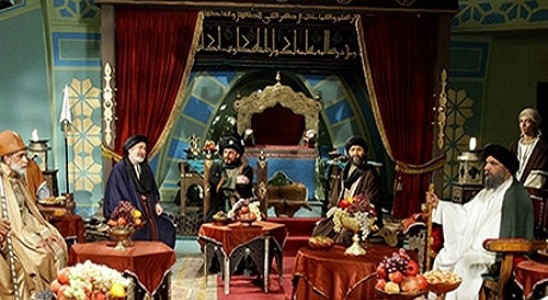
As for the negating feature of the cognitive dimension, this is going to be related to eliminating doubts and answering them. To confirm Islamic beliefs and teachings, discursive and argumentative explanations are not enough. The doubts that exist regarding them, or new misconceptions that arise must be dealt with, answered and refuted.
The holy Prophet (ṣ.a.w.) and the Infallible Imāms (a.s.) fundamentally focused on this as well, of course, within the circumstances and surrounds each one face. The Imāms (a.s.) always engaged in discussions and debates, for this very reason. During the era of the Prophet (ṣ.a.w.) and Imām ʿAlī (a.s.), these debates were basic and limited, but then it gradually expanded, as history explains, especially during the era of Imām al-Ṣādiq (a.s.) and Imām al-Riḍā (a.s.).
There are numerous examples of these debates, written extensively in history and ḥadīth books, from the Imāms (a.s.) or their students. In these debates, there was never a case that any of the Imāms (a.s.) did not have a convincing and solid answer. Many of these debates were with great scholars, scientists, leaders of religions and sects of that time, and at the end of these debates, all of them were pleased and convinced with the answers. They were also condemned that they did not have anything to counter or say. Many of them were surprised after debate, because of how great and vast the Imāms (a.s.) knowledge was, confessing that a normal person could not have such knowledge and science.
Therefore, something that the Imāms (a.s.) did to strengthen people’s faith and belief was to debate and answer doubts of others. The Umayyad and Abbasid governments had given relative freedom to the Imāms (a.s.) in this area, allowing them to engage in these dialogues. The Umayyad and Abbasid caliphs even sometimes facilitated for this, in order to gain popularity for themselves and social approval.
For example, the policy the Abbasid caliph al-Maʾmūn had was to publicly show himself as being good with the Imāms (a.s.) so that he can gain support of the people of Khurāsān, who were very fond of Ahlul Bayt (a.s.) and loved them. He brought Imām al-Riḍā (a.s.) from Madina to Khurāsān, and in appearance appointed the Imām (a.s.) as crown prince.
In line with his same political strategy, al-Maʾmūn would sometimes arrange a scientific gathering of scholars, and then invite Imām al-Riḍā (a.s.) to debate with scientists and scholars of other religions and sects.
It was never the case that the Umayyad and Abbasid rulers gave the Imāms (a.s.) total freedom in this area, but also enforced limitations to the Imāms (a.s.) as well.
Among the results these debates had was how people surprisingly realised how knowledgeable the Imāms (a.s.) were. This itself brought them popularity in hearts and souls of people, attracting people to them as well. Of course, this was also a serious threat for Abbasid and Umayyad governments, making them limit the scientific and cultural work the Imāms (a.s.) did so they do not reach that level.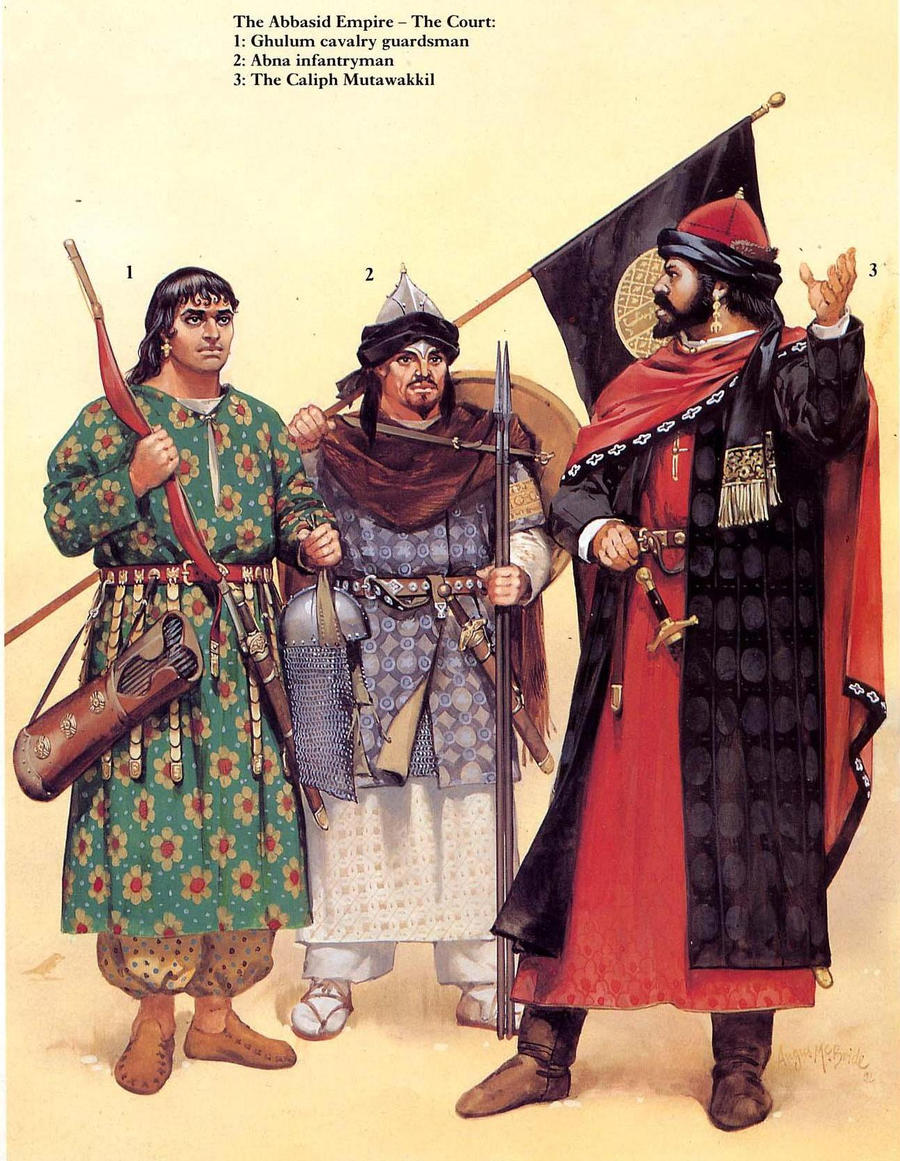
Something else the Umayyad and Abbasids feared here was in the outcome of these debates and arguments, the reality was cleared up for people, and the masses realised that in the field of caliphate, the Imāms (a.s.) are more worthy and eligible for this position. In some cases, the nature of the discussions was so direct that it explicitly proved to people that the Umayyad and the Abbasids are usurpers, and the Imāms (a.s.) are rightful in their claim of succession and caliphate.
The least that occurred was that people realised that a lot of what the Umayyads and Abbasids did was against Islam and against the sunnah of the Prophet (ṣ.a.w.) In fact, people came to know that the rulers have actually abused the title of “caliphate of the Prophet of God,” for them to reach their worldly goals and desires. Needless to say, this topic could become the basis for people to revolt against the caliph and remove them from their position.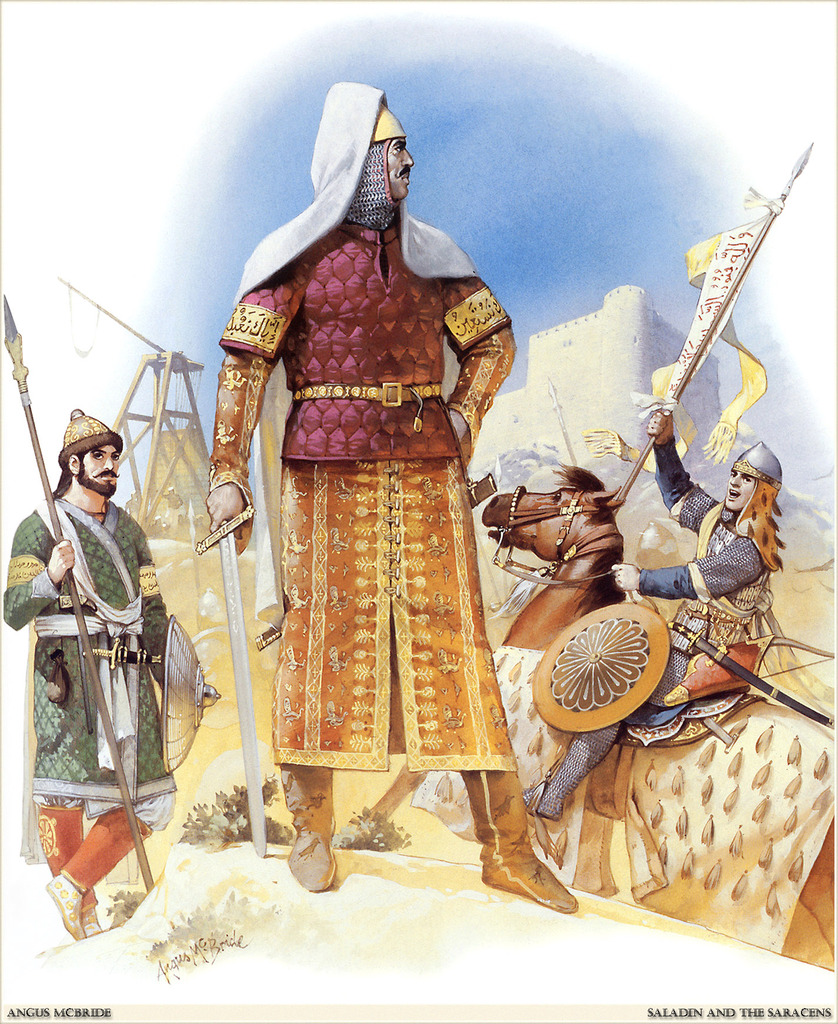
Adding to this was their immoral conduct, debauchery, corruption, un-Islamic conduct, etc., becoming an epidemic that encompassed and prevailed over the Umayyad and Abbasid government.
The scholarly discussions the Imāms (a.s.) engaged in resulted in clarifying and correcting people’s thoughts and ideas, along with exposing the un-Islamic nature of the caliph’s government, and this is what the caliphs were very worried about.
The cultural atmosphere of that time was such that majority of people believed that the caliphs were indeed the real successors and caliphs of the Prophet of God (ṣ.a.w.), and the caliphs used this title for important advantages. Among the most important of what they used this title for was to encroach the endless supply of finances from the Muslim Treasury (bayt al-māl). According to Islamic law, the authority of many of the Islamic society’s wealth and assets is under the disposal of the walī-ʾamr and the caliph of the Muslims. This includes khums, zakāt, anfāl, charity, tax, income from tributes, and so on. Income from tributes at that time was itself immensely large on its own, reaching a threshold that could not even be counted. The Umayyads and Abbasids using the title of “caliphs of the Prophet of God” encroached on these incomes and used them for their own interests and without any accountability. The people also really thought that the Umayyads and Abbasids were in fact “caliphs of the Prophet of God”, due to not having correct knowledge and understanding of true Islam. This meant that they did not question or object to how the caliphs were spending the Muslim Treasury. If the scientific debates of the Imāms (a.s.) were completely free, they would have completely removed this veil of unawareness and introduced people with the real and actual Islam. This would expose the incompetence of the caliphs, and naturally remove huge source of power and wealth from them as well.
We can unfortunately see how the Muslim Treasury is sometimes misused. Some people think that as soon as they reach a position and status, as a minister, or a representative, or a president, then they automatically have authority over the Muslim Treasury, and they are free to do as they wish. They do not care about what happens, and what the wealth is spent on, seemingly unaware that the Muslim Treasury is being misused. These people think that because people voted for them, they have also been delegated the authority of spending as they wish and give away unrestrictedly. It is not without reason that in many cases we can see this money being spent in the wrong direction, resulting in profligacy, total carelessness and becoming irreligious.
Cont….
[1] See: Muḥammad Taqī Miṣbāḥ Yazdī, Kāvushhā vā Chāleshhā, vol. 2, p. 155–236.
[2] Quran, 17: 102.
[3] Quran, 27: 13–14.
[4] Quran, 35: 10.
[5] Quran, 30: 10.
[6] Quran, 23: 82.
[7] Quran, 17: 49–98.
[8] Quran, 36: 78.
![]()

